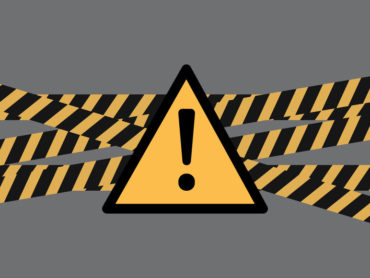The Number One Thing Your Marketing Plan is Missing
“It takes 20 years to build a reputation and five minutes to ruin it.”
I’ve always liked that quote from Warren Buffett. Although in today’s digital age I’d argue that a company’s reputation could be ruined in five seconds rather than five minutes. News, credible or not, moves at a velocity in which it can become viral shattering your reputation and market position.
Within seconds the reputation you spent years building can be smeared via social media platforms, news stories, and comment sections. In many cases you won’t see it coming and you most likely haven’t planned for it, which is why a crisis plan is the number one thing missing from your marketing plan.
Once your reputation is in jeopardy you need to be able to respond appropriately and quickly. Not having a plan in place prior to a crisis occurring can cost your company greatly. Not only in resources and potential personnel to help manage the crisis but in time and public opinion. The quicker you can get your message out the better chance you have of being able to control the story and defend your market position.
I know that crisis planning seems like a massive undertaking, but there are key components that every crisis plan should have:
- A Crisis Communications Team – You need to establish who needs to be involved in navigating the crisis and have emergency contact information for each. Identifying roles for each person based on their position within the company is also helpful. For example, who is in charge of fielding media requests, who is monitoring review and social sites for comments, etc.
- A Spokesperson – One person from your organization, ideally a member of the crisis communications team, should be selected as the sole spokesperson and that should be communicated companywide. No one else from the organization should publicly comment. You might also consider investing in media training for your spokesperson.
- Key Messages – While it’s hard to think of every scenario that might occur, you probably have a good idea of what types of things could cause a real threat to your business. Start with those items and draft 2-3 main messages for each that you can pull from and tweak as needed if a crisis were to occur.
- Internal Procedures – Outline how employees will be communicated with regarding the crisis and how they will be updated. Is it a conference call, a town hall meeting, an internal memo? Companies should select the format that best suits their organization but keep in mind that unfortunately internal documents can get leaked so having a consistent message in all communication materials is key.
- External Procedures – Know how you will respond to the main external audiences – news media (this includes online media), and social media. Have a monitoring system in place for both. This will not only help you to respond appropriately and in a timely manner but is often a way to identify a crisis that might be looming.
If your marketing plan is missing a crisis plan, make it a priority to get one done. Don’t wait until it’s too late. Need more convincing? Read why you need to Plan for a Crisis Before You are in One from our CEO, John Lonsdorf.
Need help? Drop me a note at tmiller@dev.randjsc.com. At R&J we have an experienced crisis management team that can assist you in creating a crisis plan based on the unique needs of your business and industry. Or check out our Crisis Management Webinar.



















































































